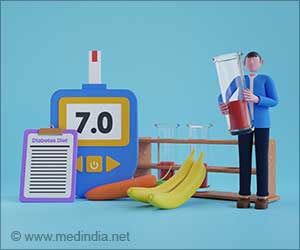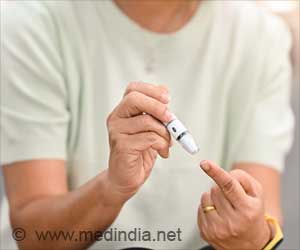A recent study shows that treating diabetes with stem cells from the human stomach may not be too far off.
- Diabetes is one of the biggest reasons for mortality worldwide
- A new study shows that human stomach stem cells can be transformed into cells that produce insulin in response to increased blood sugar levels
- However, further improvements need to be made before it is administered to the public
Human Stem Cells May Hold the Cure for Diabetes
The study shows that human stomach stem cells can be transformed into cells that produce insulin in response to increased blood sugar levels. This discovery could be a possible method to cure diabetes. The study was published in Nature Cell Biology (1✔ ✔Trusted SourceStomach-derived human insulin-secreting organoids restore glucose homeostasis
Go to source). The scientists demonstrated that they could directly reprogram stem cells taken from human stomach tissue into cells that closely resemble pancreatic beta cells, which secrete insulin and are known to be insulin-secreting cells. In a rat model of diabetes, transplants of tiny clusters of these cells restored disease symptoms.
“This is a proof-of-concept study that gives us a solid foundation for developing a treatment, based on a patient's own cells, for type 1 diabetes and severe type 2 diabetes," said Dr. Joe Zhou, study senior author, professor of regenerative medicine, and member of the Hartman Institute for Therapeutic Organ Regeneration at Weill Cornell Medicine.
Lack of Insulin: The Culprit Behind Diabetes
Without insulin, blood glucose levels rise too high, leading to diabetes and its numerous problems. Insulin is a hormone that controls blood glucose levels. Type 1 diabetes, which affects an estimated 1.6 million Americans, is caused by an autoimmune attack on the pancreas' beta cells.Numerous other Americans, at least a few million, suffer from severe type 2 diabetes and lack enough beta cells. Currently, available therapies for these conditions include manual and wearable-pump insulin injections, which have a number of disadvantages including pain, potentially ineffective glucose control, and the requirement to wear bulky equipment.
Stem Cells: A Natural Answer to Diabetes
With the use of human cell transplants that operate like beta cells and autonomously sense blood sugar levels and secrete insulin as required, biomedical researchers hope to restore beta-cell function in a more natural way. To prevent the issue of transplant rejection, such transplants should ideally be performed using the patient's own cells.Dr. Zhou has been working towards this goal for more than 15 years. In his early experiments as a postdoctoral researcher, he discovered that ordinary pancreatic cells could be turned into insulin-producing beta-like cells by forcing the activation of three transcription factors or proteins that control gene expression resulting in the subsequent activation of genes required for the development of normal beta cells (2✔ ✔Trusted Source
In vivo reprogramming of adult pancreatic exocrine cells to beta-cells
Go to source).
He and his team demonstrated in a 2016 study, also conducted in mice, that certain stem cells in the stomach, known as gastric stem cells, are also extremely responsive to this three-factor activation technique (3✔ ✔Trusted Source
Reprogrammed Stomach Tissue as a Renewable Source of Functional β Cells for Blood Glucose Regulation
Go to source).
"The stomach makes its own hormone-secreting cells, and stomach cells and pancreatic cells are adjacent in the embryonic stage of development, so in that sense, it isn't completely surprising that gastric stem cells can be so readily transformed into beta-like insulin-secreting cells," Dr. Zhou said.
Technical difficulties prevented attempts to replicate these results using human gastric stem cells, which can be extracted from patients quite readily during an outpatient procedure termed endoscopy.
However, the researchers finally had success in the latest trial, which was directed by first author Dr. Xiaofeng Huang, a professor of molecular biology in medicine at Weill Cornell Medicine.
Transforming Human Stomach Stem Cells to Beta-Like Cells to Fight Diabetes
The researchers transformed human stomach stem cells into beta-like cells, cultivated the cells in tiny clusters known as organoids, and discovered that these organ-like bits of tissue swiftly developed glucose sensitivity and insulin release in response.The beta-like organoids performed essentially as real pancreatic beta cells would when implanted into diabetic mice, secreting insulin in response to increases in blood glucose and so maintaining blood glucose levels.
Additionally, the grafts continued to function for the entire six-month period that the researchers observed them, indicating good durability.
Before their technology can be taken into consideration for clinical usage, according to Dr. Zhou and his lab, it still needs to be optimized in a number of ways.
The quantity of beta-cell manufacturing for human transplantation must be increased, and beta-like cells must be modified to make them less susceptible to the immunological response that first destroys beta cells in people with type 1 diabetes.
The ultimate goal of the research is to create a method that would allow for the relatively simple extraction of stomach stem cells from patients, followed by the transplantation of insulin-secreting organoids that could control blood sugar levels without the need for additional medication, many weeks later.
References:
- Stomach-derived human insulin-secreting organoids restore glucose homeostasis - (https://pubmed.ncbi.nlm.nih.gov/37106062/)
- In vivo reprogramming of adult pancreatic exocrine cells to beta-cells - (https://pubmed.ncbi.nlm.nih.gov/18754011/)
- Reprogrammed Stomach Tissue as a Renewable Source of Functional β Cells for Blood Glucose Regulation - (https://pubmed.ncbi.nlm.nih.gov/26908146/)
Source-Medindia
















